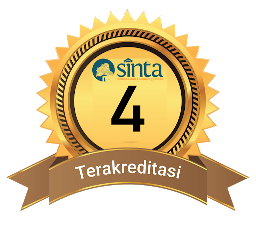The Effect Of Project Based Learning Model Assisted By Lectora Inspire Based Media On Student’s Science Process Skills
DOI:
10.29303/cep.v7i1.5703Published:
2024-05-31Issue:
Vol. 7 No. 1 (2024): Edisi Mei 2024Keywords:
project based learning, Science Process Skill, Redox ReactionsArticles
Downloads
How to Cite
Abstract
This research aims to determine the effect of the Project Based Learning (PjBL) model assisted by lectora inspire media on the chemistry science process skills of 10th grade students at SMAN 1 Lembar. This research uses a quasi eksperimental method. The research population consists of all 10th grade students at SMAN 1 Lembar, totaling 134 students from 4 classes. The sample was selected using cluster random sampling techniques. The research samples are Class X MIPA 1 as the experimental class using the Project Based Learning (PjBL) model assisted by lectora inspire based media and Class X MIPA 2 as the control class using conventional learning methods. Data collected include the results of science process skills tests and observations of teacher activities using the Project Based Learning (PjBL) model. The results of the science process skills test show that the N-Gain score for the experimental class is greater than the N-Gain score for the control class. The Presentation of the effectiveness of the PjBL model on students is as follows: 70.97% of students are not effective, 19.35% are less effective, 6.45% are moderately effective, dan 3.23% are effective. The t-test results indicate that the t-value > t-table. Observation of teacher activities using the Project Based Learning (PjBL) model has improved from the ‘good’ category to ‘very good’.
References
Agung, I. (2017). Peran fasilitator guru dalam Penguatan Pendidikan Karakter (PPK). Perspektif ilmu pendidikan. 31(2), 106- 119.
Aisyah, S., & Fatisa, Y. (2022). Desain dan Uji Coba Media Pembelajaran Menggunakan Multimedia Interaktif Lectora Inspire pada Materi Larutan Penyangga. Journal of Chemistry Education and Integration, 1(1), 34-44.
Destrini, H., Nirwana, Sakti, I. (2018). Penerapan Model Pembelajaran Penemuan Terbimbing (Guide Discovery Learning) untuk Meningkatkan Hasil Belajar dan Keterampilan Proses Sains Siswa. Jurnal Kumparan Fisika,1(1), 13- 21.
Elvanisi, A., Hidayat, S., & Fadillah, E. N. (2021). Analisis Keterampilan Proses Sains Siswa Sekolah Menengah Atas. Jurnal Inovasi Pendidikan, 4(2), 245-252.
Fatnah, N., Azizah, D., & Cahyani, M. D. (2021). Penerapan Model Pembelajaran Berbasis Proyek Melalui Kegiatan Fun Chemistry untuk Meningkatkan Keterampilan Proses Sains di SMK. Jurnal Zahra, 9(1), 15-21.
Gaol, Y. M. L., & Darmana, A. (2022). Pengaruh Multimedia Lectora Inspire pada Pembelajaran Model Problem Based Learning (PBL) Terhadap Hasil Belajar Termokimia. Jurnal Sains Riset, 12(1), 38-43.
Izati, S. N., Wahyudi, Sugiyanti, M. (2018). Project Based Learning Berbasis Literasi untuk Meningkatkan Hasil Belajar Tematik. Jurnal Pendidikan, 3(9), 1122- 1127.
Kristanti, Y. D., Subiki, Handayani, R. D. (2017). Model Pembelajaran Berbasisi Proyek (Project Best Learning Model) Pada Pembelajaran Fisika di SMA. Jurnal Pembelajaran Fisika, 5(2), 122-128.
Maghfiroh, N., Susilo, H., & Gofur, A. (2016). Pengaruh Project Based Learning Terhadap Keterampilan Proses Sains Siswa Kelas X SMA Negeri Sidoarjo. Jurnal Pendidikan, 1(8), 1588-1593.
Purnawati, S. M. (2017). Pengembangan Media Pembelajaran Berbasis Lectora Inspire untuk Meningkatkan Hasil Belajar Siswa Mata Pelajaran TIK Kelas IX SMP Negeri 3 Semarang. http://lib.unnes.ac.id/id/eprint/31065
Rahmi, R., Hartini, S., & Wati, M. (2014). Pengembangan Lembar Kerja Siswa (LKS) Berbasis Inkuiri Terbimbing dan Multimedia Pembelajaran IPA SMP. Berkala Ilmiah Pendidikan Fisika, 2(2), 173-184.
Shalikhah, N. D. (2016). Pemanfaatan Aplkikasi Lectora Inspire Sebagai Media Pembelajaran Interaktif. Cakrawala, XI(1), 101-115.
Suryaningsih, Y. (2017). Pembelajaran Berbasis Praktikum Sebagai Sarana Siswa Untuk Berlatih Menerapkan Keterampilan Proses Sains dalam Materi Biologi. Jurnal Bio Education, 2(2), 54-55.
Tambunan, I. R., & Purba, S. (2017). Penegmbangan Media Pembelajaran Berbasis Aplikasi Lectora Inspire untuk Mata Pelajaran Dasar dan Pengukuran Listrik Kelas X di SMK Swasta Imelda Medan. Jurnal Manajemen Pendidikan, 9(1),24-34.
Wahyudi, D., & Lazulva. (2021). Analisis Keterampilan Proses Sains Siswa Melalui Pembelajaran Berbasis Proyek Pada Materi Larutan Elektrolit dan Non- Elektrolit, 3(2), 51.
Widyaningrum, A. (2021). Analisis Keterampilan Proses Sains Peserta Didik Pada Materi Ikatan Kimia Kelas X SMAN 6 Madiun. Jurnal inovasi pembelajaran kimia, 3(1), 1-2.
Yoto,
Zulkardi, Wiyono, K. (2015). Pengembangan Multimedia Interaktif Pembelajaran Teori Kinetik Gas Berbantuan Lectora Inspire Untuk Siswa Sekolah Menengah Atas (SMA). Jurnal Inovasi dan Pembelajaran Fisika, 2(2), 211-219.
Yulianto, D., & Juniawan, E. A. (2022). Pengembangan Media Pembelajaran
Interaktif Lectora Inspire Pendekatan Sainstifik Meningkatkan Kemampuan
Kritis Matematis. Jurnal Penelitian Pembelajaran Matematika, 15(1), 1-16.
Author Biographies
Rania Surayya, Universitas Mataram
Yunita Arian Sani Anwar, Program Studi Pendidikan Kimia, Universitas Mataram. Mataram, Indonesia
I Nyoman Loka, Program Studi Pendidikan Kimia, Universitas Mataram. Mataram, Indonesia
License
Copyright (c) 2024 Rania Surayya, Yunita Arian Sani Anwar, I Nyoman Loka

This work is licensed under a Creative Commons Attribution-ShareAlike 4.0 International License.
Authors who publish with Chemistry Education Practice agree to the following terms:
- Authors retain copyright and grant the journal right of first publication with the work simultaneously licensed under a Creative Commons Attribution License 4.0 International License (CC-BY-SA License). This license allows authors to use all articles, data sets, graphics, and appendices in data mining applications, search engines, web sites, blogs, and other platforms by providing an appropriate reference. The journal allows the author(s) to hold the copyright without restrictions and will retain publishing rights without restrictions.
- Authors are able to enter into separate, additional contractual arrangements for the non-exclusive distribution of the journal's published version of the work (e.g., post it to an institutional repository or publish it in a book), with an acknowledgement of its initial publication in Chemistry Education Practice.
- Authors are permitted and encouraged to post their work online (e.g., in institutional repositories or on their website) prior to and during the submission process, as it can lead to productive exchanges, as well as earlier and greater citation of published work (See The Effect of Open Access).






